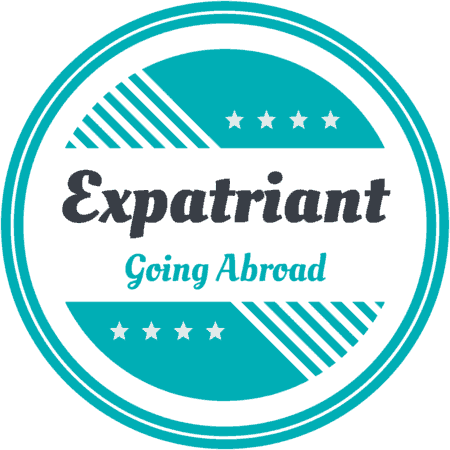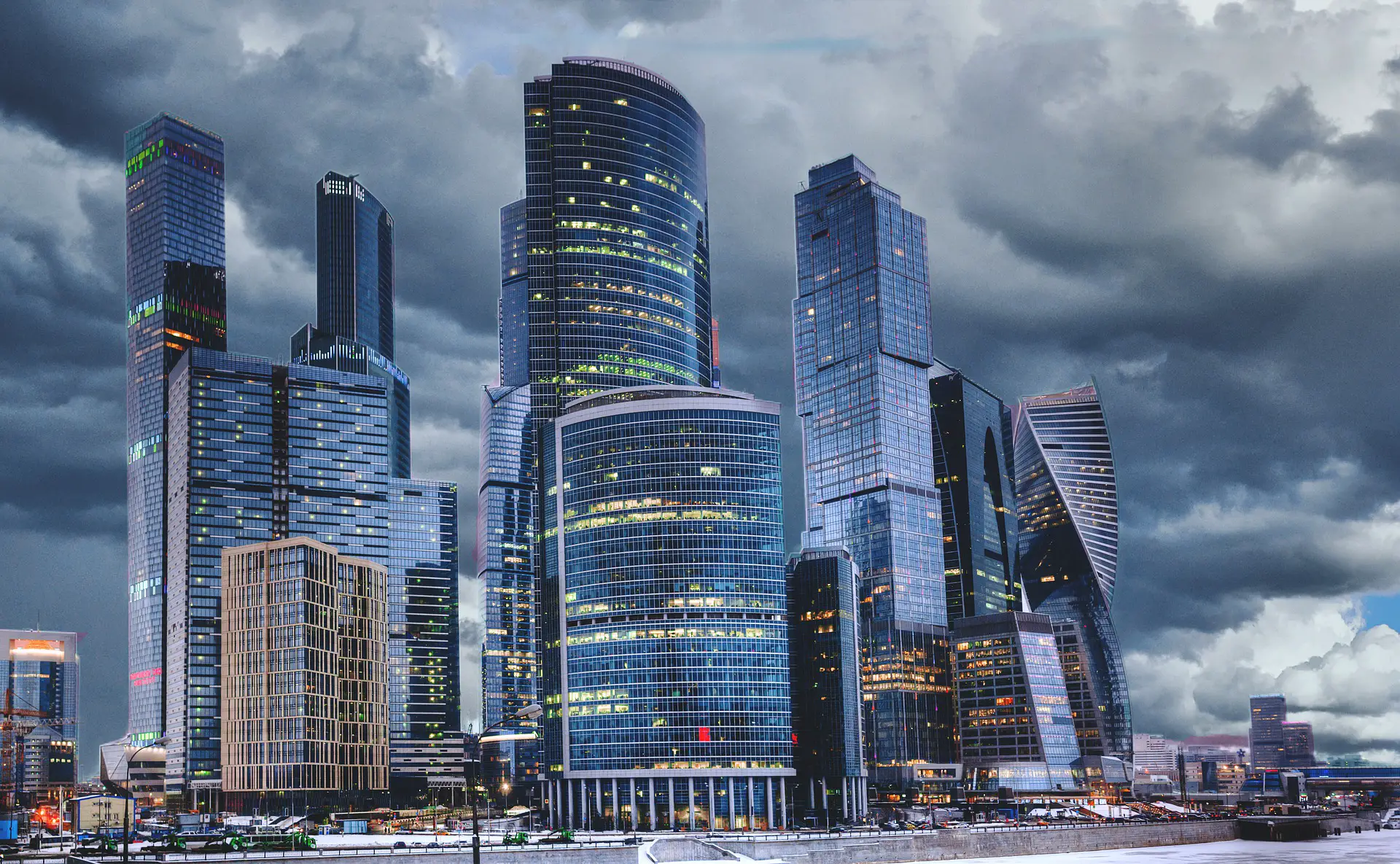Starting a small business in Russia is off the radar for most people, but Russia is a country with significant investment potential. The World Bank ranks Russia at 28 in the world out of 190 countries for ease of doing business in 2020. In 2010, it was ranked 120 out of 183. This is an incredible achievement, and very few countries have been able to achieve this type of progress over only 10 years, especially given that Russia has been under international sanctions for most of this time. Russia welcomes not only high net worth investors and multinational companies, but also foreigners who want to start a small or medium-sized business.
There are a few ways to start your own business in Russia, you can incorporate as a limited liability company or register as an individual entrepreneur in Russia. Registering and incorporating a company is neither time consuming nor expensive. In fact, registering a limited liability company in Russia is very cheap. The minimum required share capital to incorporate a limited liability company is only 10,000 RUB ($134) and there is no share capital requirement for individual entrepreneurs.
Another key advantage that Russia has is that small and medium-sized businesses are eligible for special tax regimes with lower tax rates of 6-7% on revenue and 15% on profit. Russia also has one of the lowest income tax rates in the world at 13% for tax residents. If you are looking to operate an online business, for example, Russia is one of the lowest taxed jurisdictions in the world.
Legal Entities for Small Business in Russia
As we mentioned above, the most common forms for small and medium-sized businesses in Russia are registering as an individual entrepreneur or incorporating as a limited liability company (LLC).
Individual Entrepreneur
An individual entrepreneur is not a separate legal entity, but rather it is an individual with special legal status under Russian corporate law.
The following are the main advantages of doing business as an individual entrepreneur in Russia:
- The registration process is simple (when compared to an LLC or other legal entities)
- An individual entrepreneur can use a simplified tax system
- An individual entrepreneur does not have to keep accounting records
- Reporting to the Russian government as an individual entrepreneur is simplified
- All money earned by an individual entrepreneur (after taxes and other pension and medical contributions) becomes personal money, therefore, it can be used for any purpose
Here are some of the main disadvantages of doing business as an individual entrepreneur in Russia:
- An individual entrepreneur is personally liable for obligations of the business
- An individual entrepreneur cannot conduct just any type of business, there is a list of prohibited business activities for individual entrepreneurs (for example, production and sale of alcohol or security services)
- An individual entrepreneur has to make fixed insurance contributions to the state pension fund irrespective of his income, even if there is no revenue
- An individual entrepreneur cannot sell the business
The biggest issue in operating as an individual entrepreneur in Russia is that you must prove that you permanently reside in Russia. This means that you must have a temporary or permanent residence permit. If you are interested in reading about residence options in Russia, check out our detailed guide on obtaining a residence permit in Russia.
Unfortunately, if you are in Russia on a visa, it is not possible to register as an individual entrepreneur in Russia. A Russian visa only confirms that you can stay temporarily in Russia, but does not grant any legal residence rights.
In all other respects, registering as an individual entrepreneur as a foreign citizen or a Russian citizen is the same.
In order to register with the Russian government as an individual entrepreneur, you must submit the following documents to the tax authorities of Russia:
- Application to register as an individual entrepreneur
- A copy of your ID or passport
- A copy of your temporary or permanent residence permit or work permit
- Various other documents
- A registration fee of 800 RUB ($11)
When you are registering, you must indicate the types of business activities you intend to conduct. You may add types of business activity later as well. Also, note that some activities require a license. In which case, you would need to obtain the required license.
Limited Liability Company
Doing business as a limited liability company in Russia is by far the most common. A Russian limited liability company is a legal entity in which shares of the company are distributed between its shareholders. Shareholders of a limited liability company in Russia are liable for the company’s debts only to the extent of their contributions.
Here are the main advantages of doing business in Russia as a limited liability company:
- There is no requirement to have a temporary or permanent residence permit to be a shareholder of a limited liability company
- Property of shareholders is legally separate from the property of the limited liability company
- The minimum share capital amount required by law is very low, only 10,000 RUB ($134)
- A limited liability company may be incorporated by one person (either an individual or legal entity)
- A limited liability company can employ foreign citizens by applying for work permits (you can even apply for one for yourself)
- Limited liability companies can use the simplified tax system
- Limited liability companies can attract investment and add more shareholders to the company
- Limited liability companies can use standard articles of association (charter) approved by Russian state authorities instead of writing up your own
- Shareholders of limited liability companies can do anything with their shares (sale, pledge, etc.)
- Limited liability companies have access to conduct business from an extended list of permitted business activities (compared to an individual entrepreneur)
- Limited liability companies can open branches and representative offices in other cities around Russia or globally in addition to the home office
- Limited liability companies may have two managing directors each acting on behalf of the company
- Opening a limited liability company in Russia is a possible route to obtaining a residence permit in Russia
The main disadvantages of doing business as a limited liability company in Russia (compared to an individual entrepreneur) are:
- The state incorporation procedure is more complicated and there are more documents required compared to registering as an individual entrepreneur
- A limited liability company is required to keep accounting records (meaning you will need an accountant)
- Earned profit belongs to the company and cannot easily be paid out to shareholders other than by a distribution of profit or as a dividend
- Limited liability companies are required to have an official registered address
To register a limited liability company as a foreign citizen, you must submit a certain set of documents and pay the registration fee of 4000 RUB ($55).
There are additional requirements to register a limited liability company in Russia, for example, getting certain documents translated and notarized, as well as submitting documents to the tax authorities, etc. In Russia, unfortunately, it is also common that if you do not follow procedures exactly, the state authorities may deny your registration. A competent Russian lawyer can easily ensure that this does not happen. If you do not speak Russian, we highly recommend you find a trusted lawyer.
Russian limited liability companies must also have an executive body, and in most cases, this is a general director. The only restriction that applies to foreign general directors is that they must have a work permit before they can become a general director. If the general director already has a temporary or permanent residence permit or a patent (for visa-free countries), then a work permit is not needed.
In practice, to successfully register a company, you need a temporary general director who has a work permit or residence permit or is a Russian citizen to serve as an interim director until the company is registered. Once the limited liability company is registered, you may apply for a work permit for a foreign general director. We will take a more detailed look at this procedure in an upcoming article.
Taxes and Mandatory Contributions
Next, let’s take a brief look at common taxes that are typically payable in a small business scenario in Russia.
Value-added Tax (VAT)
Value-added tax is an indirect tax. It is levied on the cost of goods (works, services). The seller charges VAT on the output and issues an invoice, indicating the amount of tax, to the buyer.
Companies and individual entrepreneurs are both required to pay VAT.
The standard VAT rate in Russia, as of 2020, is 20%. There are some categories of goods, i.e., food, children’s products, medical goods, etc., which have a discounted VAT rate of 10%. VAT on exported goods is set at 0%. Certain other transactions are exempt from VAT.
Corporate Tax
Russian corporate tax is one of the main taxes, which companies must pay based on profit generated. As of 2020, the standard corporate tax rate in Russia is 20%. A discounted rate may be applied in particular regions of Russia, as well as for residents of special economic zones, for participants in investment projects, etc.
Personal Income Tax
Personal income tax is the main tax on individuals (including individual entrepreneurs) and is applicable to income of almost all types.
The standard personal income tax rate in Russia is 13%, which is based on a simple tax residency test. A Russian tax resident is any individual physically present in Russia for at least 183 calendar days in the following 12 consecutive months (regardless of citizenship).
- 13% is the standard rate for tax residents. It applies to all income to which special rates are not applicable. In particular, individual entrepreneurs’ income is taxed at a rate of 13% (if they don’t use one of the available special tax regimes discussed below).
- 30% is the standard rate for non-residents, if exceptions are not applicable to them (i.e., a highly qualified specialist work visa).
It is important to note that Russia is a party to many international tax treaties. These treaties ensure that you are not taxed twice on the same income in different countries (double taxation). International treaties take precedence over Russian national tax law. Should there be a conflict of laws, the international treaty is applied. You should, therefore, check to see if your home country is a party to a double tax treaty with Russia. Most Western countries have signed tax treaties with Russia.
In addition to tax payments, Russian companies and individuals are liable for contributions to various Russian insurance programs (the pension fund and medical and social insurance). Technically, these insurance program contributions are not considered taxes because the beneficiary is not the Russian government, but rather non-budgetary funds where the money is held. Every employer (individual entrepreneurs and companies) must make insurance program contributions on behalf of their employees, and an individual entrepreneur (if working alone) must make payments on his own behalf.
Companies must make contributions to insurance programs, which are calculated as a percentage of any given employee’s salary at a regressive rate (i.e., the higher the salary, the lower the rate). Currently, the rates start at 30% and decrease to around 15% for higher-paid employees.
As of April 2020, small and medium-sized businesses may now make contributions at a reduced rate of 15% to the Russian insurance programs. This exemption applies to all companies and individual entrepreneurs with no more than 250 employees and revenues that do not exceed 2 billion RUB ($27 million) per year. There are other restrictions regarding membership in the company, etc.
Individual entrepreneurs must make contributions to the insurance programs as follows:
- Fixed payment for the individual entrepreneur for himself, regardless of his income (about 40,000 RUB in 2020)
- An additional payment on behalf of the individual entrepreneur in the amount of 1% of income exceeding 300,000 RUB per year up to a maximum amount (in 2020 it is about 260,000 RUB per year)
- Payments on behalf of the individual entrepreneur’s employees (at the same rates as companies mentioned above).
Special Tax Regimes
The taxes we mentioned above (VAT, personal income tax, corporate tax), as well as some other taxes, belong to the general tax system. Apart from this system, some other special regimes exist, including the following:
- Simplified tax system
- Patent tax system
- Occupational tax for the self-employed
Both companies and individual entrepreneurs can apply special tax regimes. The distinguishing feature of the special tax regimes is that all of the taxes under the general tax system (insurance payments are not included) are replaced by one single tax at a discounted rate, with a simplified method for calculation.
Small and medium-sized businesses in Russia can choose between the general tax system or one of the following special tax regimes. The general tax system is quite sophisticated and often disadvantageous for start-up entrepreneurs. Special tax regimes allow you to pay a lower tax rate and submit fewer accounting reports to the Russian tax authorities.
Below is a brief description of each special tax regime that is available in 2020.
Russian Simplified Tax System
Both companies and individual entrepreneurs may apply to use the Russian simplified tax system.
The Russian simplified tax system involves the replacement of basic taxes (VAT, corporate tax, personal income tax for individual entrepreneurs, etc.) with one single tax. In this case, the taxpayer can choose one of the following two methods for calculating their tax obligations.
- 6% tax on revenue
- 15% tax on profit (after subtracting expenses from revenue)
Certain companies cannot apply the simplified tax system, for example, foreign companies, companies with branches, or if other legal entities (companies) are shareholders of the company and own a total of more than 25% of its share capital, etc.
There are a few requirements that a company must meet in order to apply to use the simplified tax system, namely:
- Number of employees cannot exceed 100
- Revenue does not exceed 150 million RUB ($2 million) per year.
Patent Tax System
Individual Entrepreneurs may apply to use the patent tax system if they meet the following requirements:
- The number of employees under the individual entrepreneur is not more than 15
- The individual entrepreneur’s revenue does not exceed 60 million RUB ($800,000) per year
- The individual entrepreneur is engaged in specific types of business, including retail, transportation, catering, public services, etc. (there is an exhaustive list that varies by region in Russia)
The patent tax system is similar to the simplified tax system described above in that the patent substitutes the taxes that an individual entrepreneur must pay (VAT, personal income tax, etc.) and replaces them with a single payment called the patent tax. The cost of applying for a patent is fixed and depends on the type of business activity the individual entrepreneur conducts. The law of each particular region of Russia sets out the potential revenue limits for each type of business activity. This revenue is taxed at a rate of 6%.
The total cost of the patent in each region may be calculated on the official website of the Federal Tax Service of Russia (in Russian).
The patent is valid for a period of up to 12 months.
Occupational Tax for the Self-employed
There is a relatively new tax regime with fairly attractive terms, but so far it only applies to citizens of the countries, which are part of the Eurasian Economic Union (EAEU). These countries are Russia, Armenia, Belarus, Kazakhstan, and Kyrgyzstan. This special tax regime is unique in many ways:
- Self-employed workers under the regime do not have to make insurance contributions
- Self-employed workers undergo a simplified online registration procedure
- A much lower tax rate is applied from 4%
Please keep in mind that using the simplified taх system or the patent tax system does not imply exemptions from insurance contributions.
Summary
Russia is a country with an ever more favorable investment climate for small and medium-sized businesses. Doing business in Russia, in many instances is advantageous for small and medium-sized businesses with preferential terms for doing business in the form of very low tax rates, low incorporation fees, etc. Contrary to misconceptions, Russia in 2020 is one of the most globally competitive jurisdictions for small and medium-sized businesses, especially if you are doing business primarily online. For more information on opportunities in Russia, the U.S. Department of Commerce has a very helpful Russia Commercial Guide.
However, in order to understand all of the intricacies of the Russian legal system, you will need trusted specialists (lawyers, tax consultants, accountants). Based on your intended type of business, they can give you advice on the most suitable form of doing business in Russia and applying for the most advantageous tax regime, as well as assist in registration and provide ongoing business support.
Avakov Tarasov & Partners is one of the leading law firms in Russia and provides business support to many foreign companies looking at Russia as a possible market for doing business. If you are interested in learning more about opportunities in Russia, reach out to Suren Avakov whose details are below or you can contact Expatriant.


